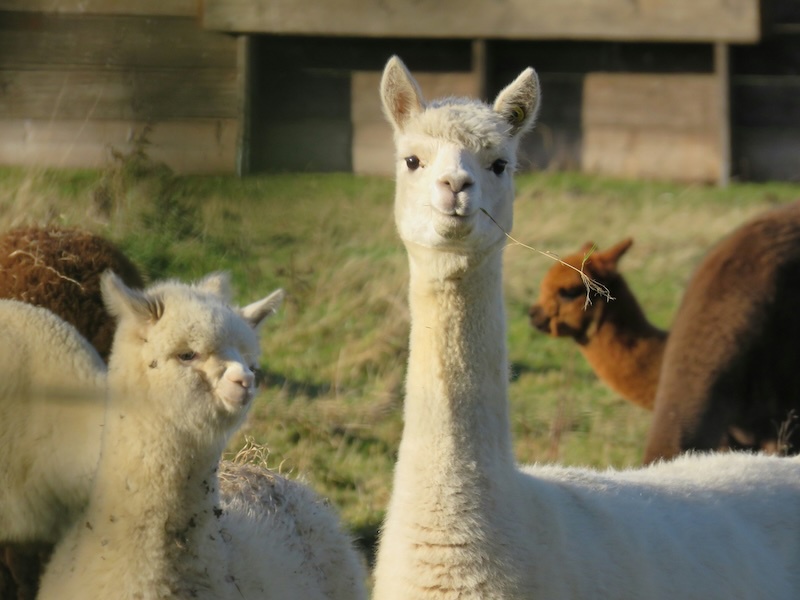Llama Words: a New Spin on Nothing New
Episode 1: the Llama Mind
Do Llamas Show That Our Thoughts Aren’t Fully Our Own?

Photo Credits: Benjamin Sow on Unsplash+.
The Current State of Llama Words
What are llama words?
I don’t know.
But we’ll learn.
And we’ll tackle the question by breaking it down into its components:
- What are llamas?
- What are words?
But who are we asking?
That’s who we’re asking.
Our results might be an enlightening digest of wisdom or a dumpster fire of non sequiturs.
Let’s experiment.
Artificial Intelligence and Camelids
First up: what are llamas?
In the cutthroat world of search engine optimization (SEO), there is something known as a search engine results page (SERP). We’re all familiar with SERPs: it’s the list of results from a search engine query. And SERPs are much like the weather: they change daily, sometimes for the better, sometimes for the worse.
Today’s Google SERP for “llama“ yields two interesting results. In ranking order,
Llamas are either artificial intelligences (AI) or woolly mammals. It could be both. But I suspect that the world’s not ready for Robollama. I know I’m not.
We thus have a decision to make:
- Are llamas AI?
- Are llamas woolly mammals originating from South America?
Let’s answer that question by first discussing me, your humble author.
Am I Artificial and Intelligent?
I am not artificial. The words posted here are not the mere result of typing prompts into an AI model. Nor are they mostly produced by artificial intelligence. I am not an AI copyeditor.
But I do want to be mostly intelligent. And AI helps with being mostly intelligent in this day and age.
So, AI is used here in the following ways:
- As a research assistant,
- As a discussion partner.
Blogging purists may balk at my use of AI. To them I apologize—I find myself more clever with a machine’s help.
But blogging purists do have a point: are my thoughts the result of my own mind or the machine’s?
The question is akin to this one: are research results the product of the researcher or the research?
The answer is obviously both. Posts here are no different: they are the results of both my mind and the machine’s. And the point generalizes: when you use AI, the content of your thoughts is both your’s and the AI’s. Mayhap we’re closer to machines than we think—prepare for Robollama!
So we’re all llamas because we’ve all got some AI in us.
But are we also woolly mammals?
Herd Behavior
The SERP ranking for “llama” shows that, as a society, we’re more interested in artificial beings than biological ones. For those interested in organic llamas, though, here’s some riveting facts about their behavior:
- Llamas communicate with one another by humming,
- Llamas are herd animals and spit at each other as a form of discipline,
- Llamas are certified therapy animals in the American Pacific Northwest.
I don’t hum. I don’t spit. I’m not a therapy animal.
You’d think I’m no llama at all.
But you’re wrong. There is a part of me that’s llama—and a part of you.
We herd.
We don’t herd like llamas herd. We’re sometimes solitary. Our social dynamics are more fluid than that of our woolly friends. And we’re egalitarian (at least in ideal situations). But by and by we’re just as conforming as the noble llama.

Photo Credits: Chris on Unsplash+.
There are two deep ways we’re herd animals:
- Informational cueing: we reference others to figure out things about the world and its goings on.
- Normative cueing: we reference others to determine how to act upon that information.
By and large, we acquire education through others. We go to school. We read books (written by others). We have discussions. Even artificial intelligence relies on informational cuing—after all, it’s trained on the internet, which, in many ways, is just the massive result of humankind’s learnings.
And if you’re not a complete psychopath, then you probably learned from and look toward others to figure out how to act. Your first source of behavioral normativity was likely your primary caregivers, whether it be your parents, grandparents, or a rugged pack of llamas. (And if it was llamas, I apologize for all the spitting.)
Our caregivers introduced us to the concepts of right and wrong. And your notions of them surely matured as you did. But it didn’t do so in a vacuum.
Meeting new people, engaging in hushed late night discussions, and general social engagement fine tuned your understanding of the moral landscape. And it’s no wonder that we disagree so vehemently on these matters, for people have vastly different social experiences and therefore live within widely divergent normative cliques.
So, “No man is an island,” as John Donne famously wrote, and that’s why we’re llamas.
A Question for the Llama Mind
Here’s what we’ve learned:
- The thoughts expressed here are the results of my mind and the machine’s mind,
- In many ways, the content of my mind and the machine’s mind are the results of other minds’ content,
- Therefore, the thoughts expressed here are, in many ways, the results of other minds, minds just like your’s.
It’s the circle of mental life: my mind is your mind is the machine’s mind is the herd’s mind.
And we look toward the herd to figure out how to act.
So, if our actions result from our thoughts and our thoughts, in part, result from the herd’s thoughts, then are our actions fully our own actions?
I don’t know.
Do you?
A New Spin on Nothing New
Nothing new was said here, but hopefully it was said in a new way.
And although we may not have said anything true, hopefully we said something interesting. That’s the point: to run around the internet and end up with a kernel of thought.
Welcome to Llama Words.
Next Week
Stay tuned for next week when we take a look at the meaning of “words.” As we’ll see, words mightn’t stand alone either—they’re just as trapped in the herd of thoughts as our own mind.
Llama Words is released every Thursday before sunrise.
Subscribe via rss feed or email below.